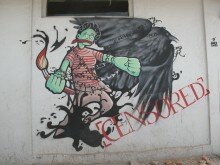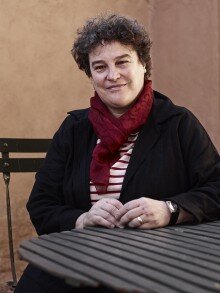Oblique Trajectories
Forum publishers have just come out with a precious little book: Notizie dalle Esperidi (News from the Hesperides), by a young poet, Paolo Ruffilli, to whom I’d like to draw attention because of his unquestionable talent. I must confess that what sparked my interest was a part of the collection dedicated to a visit to the Monterosso cemetery. It was a sentimental reason: the encounter of fact and fantasy was linked to a place of my childhood and memory. I was struck by how the young Ruffilli had given poetic dignity to ghosts and figures of death confined to a few mangled phrases and solemn epigraphs. I insist on the ‘how’.
That was the decisive point that pushed me to go ahead, beyond the personal allure of a cherished place, and read Ruffilli’s entire book. I liked this young poet’s manner: the fact that he chose the way of subtraction, of taking away and reducing, in order to express matters of the world and of life. The importance of ellipsis and omission in modern poetry is well known; in this regard we have the extremely precocious teaching of Leopardi, a master at showing by making use of the void. Certainly, Ruffilli has made Leopardi’s lesson his own; he goes further, by embarking on an oblique path compared to the poets of our 20th century. Characterized by not saying, precisely in order to express more, Ruffilli’s style reminds me of little slivers floating, of tiny bubbles that reach the surface by rising straight up from the bottom. These slivers, which take up so little space with their subtle consistency, manage to portray reality in its entirety. Everything is done with sharp colours, an amiable dryness and a slightly resentful sweetness. With detachment, therefore, without nostalgia or, worse, trepidation. But with complicity.
It could be that I am in the right position to see things with impartiality, in the chaotic landscape of our recent and very recent poetry; it is a position that is necessarily of arrival and perhaps of the end of a journey, while facing the reality of my life. In any case, I don’t think I am far from the truth in saying that Paolo Ruffilli will have some pleasant surprises in store for us in the future.
Translated by Berenice Cocciolillo
Presented on ‘Rai radiotelevisione italiana-Terzo Programma della Radio’, (Italian State Radio program), January 22, 1977, and then published in Discorso diretto , I, 1, 1978 with the title ‘Traiettorie sghembe’.













